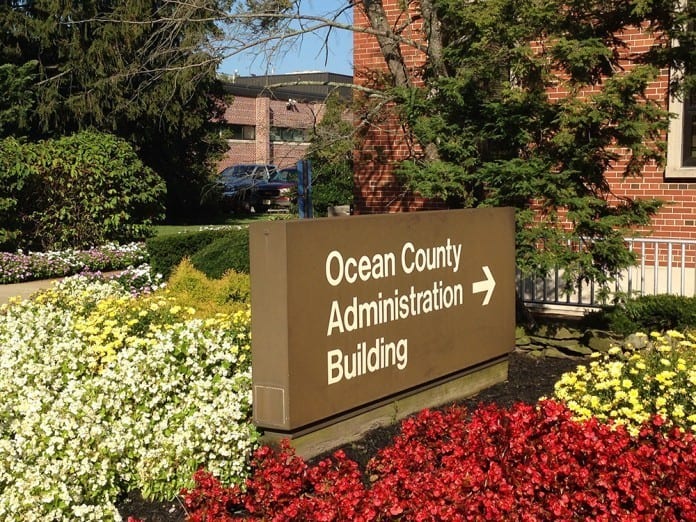
OCEAN COUNTY officials announced the County will receive $1.1 million in incentives from the state Board of Public Utilities for the installation of a energy efficient heating and cooling system at the Ocean County Justice Complex on Hooper Avenue, Toms River.
“We are very happy to receive these incentives from the BPU,” said Ocean County Freeholder Director Joseph H. Vicari, who serves as liaison to the county’s Department of Buildings and Grounds. “This is an important step in the work Ocean County has been doing to create more energy efficient facilities.”
The BPU noted the County submitted an application under the New Jerseys’ Clean Energy Program’s Combined Heat and Power & Fuel Cell Program requesting $1.1 million in incentives for the installation of a new Combined Heat and Power system at the Ocean County Justice Complex in downtown Toms River.
The Justice Complex is a multi-use facility housing courtrooms, some of the divisions of the Ocean County Sheriff’s Office, jail facilities and other government functions.
The new 600 kW CHP system generates electricity to power the facility, while capturing and using the waste heat for space heating, cooling, and water heating.
According to Vicari and the BPU, the energy efficiency measures will provide both energy and cost savings.
“The estimated annual energy cost savings is expected to be $383,000,” Vicari said. “That is substantial savings for the county taxpayers.”
Ocean County has closely been working with the BPU on energy upgrades at County facilities.
In November, the County was notified by the state Board of Public Utilities that it accepted and approved the county’s plan for energy upgrades.
“With that approval we began to move forward with the upgrades,” Vicari said.
 Ocean County completed the energy audit in May submitting the information to the BPU for approval.
Ocean County completed the energy audit in May submitting the information to the BPU for approval.
“This audit is very important to us as we look at ways to reduce costs and improve our energy efficiency,” Vicari said. “The audit comes with a number of beneficial suggestions that we will be considering for implementation.”
Under the program, Vicari said, costs for the improvements would be offset by incentives from the state.
And, he said, the money saved on energy could be reallocated to pay for additional energy upgrades. The audit’s recommendations could reap a self-funding potential of $19.3 million which is more than $1.3 million more than the amount appropriated for the upgrades.
“The energy audit was the result of an exhaustive examination of six facilities that receive a lot of traffic both from the public and with our employees,” Vicari said. “That is why they were chosen for this initial review.”
In addition to the Justice Complex the other facilities included the Ocean County Courthouse, the Ocean County Administration Building, the Ocean County Jail, the Ocean County Prosecutor’s Office and the parking garage all in downtown Toms River.
“These facilities total 1,022,775 square feet,” Vicari said. “They produce an annual energy bill of $2.3 million.”
Ocean County is looking at other improvements including upgrades to the lighting systems, automated controls for lighting, upgrades to existing heating and air conditioning systems and some building improvements.
The BPU’s Clean Energy Program promotes increased energy efficiency and the use of clean, renewable sources of energy. The County began the process in late 2014 to participate in the Local Government Energy Audit to identify cost-justified efficiency measures. This audit results provided the Board of Freeholders with various energy alternatives that can be implemented.
Over the course of several months, representatives from DCO Energy, Lawrenceville, visited each county location noted in the audit and did a complete review of the buildings.
“They looked at electric and natural gas usage, building architectural and engineering drawings, lighting systems, heating and air conditioning equipment and controls, roofs, windows, doorways, occupancy schedules and maintenance practices,” Vicari said.






